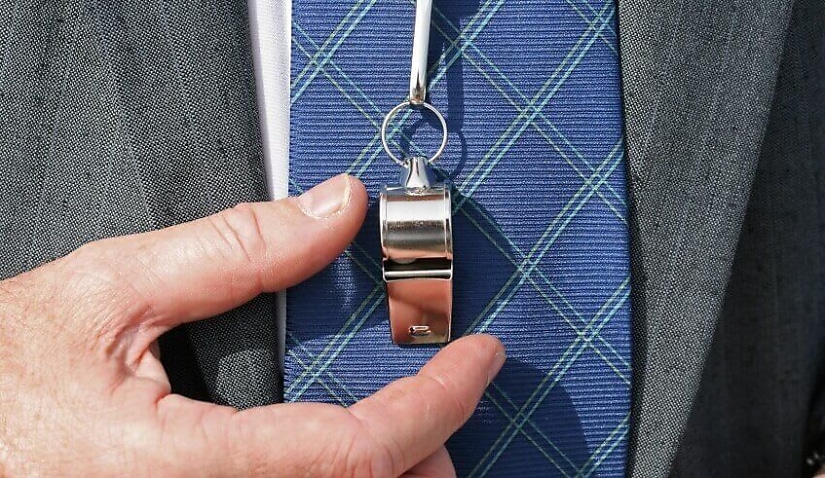Powered by MOMENTUM MEDIA
David McBride will soon face his defence hearing regarding his whistleblowing on war crimes allegedly committed by Australian soldiers in Afghanistan. Legal organisations have condemned the prosecution.

Mr McBride is a former Australian army lawyer who is facing prosecution for providing the ABC with information about war crimes. His defence hearing begins in Canberra today, 27 October.
Mr McBride was subsequently charged with five offences, including the unauthorised disclosure of information, theft of Commonwealth property, and three counts of breaching the Defence Act.
The ABC was raided by federal police over the reporting, although prosecutors did not proceed with a case against journalist Dan Oakes.
Mr McBride’s trial will begin with a defence under the Public Interest Disclosure Act, the federal whistleblowing law, before a judge in the ACT Supreme Court. If McBride is unsuccessful in his defence, he will face a jury next year.
The Human Rights Law Centre (HRLC) and Australian Centre for International Justice (ACIJ) are calling for an end to the unjust prosecution of Mr McBride.
“David McBride is currently the only person facing prosecution for the alleged war crimes committed by Australian forces in Afghanistan — and he’s on trial for telling the truth about those allegations,” stated Kieran Pender, senior lawyer at the HRLC.
“There is no public interest in prosecuting whistleblowers. This case is unjust and anti-democratic.”
In July, Attorney-General Mark Dreyfus KC dropped the prosecution of Bernard Collaery following sustained pressure from advocates, including the HRLC, the Australian Bar Association and the Law Council of Australia.
The HRLC has repeatedly called on the Commonwealth Director of Public Prosecutions or the Attorney-General to use the same powers in the prosecution of Mr McBride and discontinue the case.
“The Brereton Report underscored the importance of whistleblowing to its findings and the need for the Australian Defence Force to protect and empower whistleblowers,” said Mr Pender. “Instead, David McBride finds himself on trial.
“This ongoing prosecution makes a mockery of the Brereton Report and is a stain on Australia’s international reputation.”
Mr McBride’s defence under whistleblowing law is only the second time the PID Act has been tested in this way. Earlier this month, tax office whistleblower Richard Boyle also argued that the PID Act gave him immunity from criminal prosecution.
Mr McBride tried to follow the PID Act — blowing the whistle internally first, and then to oversight agencies; only as a last resort did he go public.
Speaking up publicly is protected in certain circumstances under the PID Act, which recognises the important democratic role of the media and its importance as a safety valve when whistleblowing is not heeded internally.
“The Boyle and McBride cases highlight the failings of Australia’s whistleblowing laws,” Mr Pender went on. “If the PID Act was working, neither would be on trial.
“The Attorney-General has admitted the PID Act is broken and needs to be fixed but is consigning these two brave whistleblowers to their fate reliant on a faulty shield.
“The Australian government must drop these prosecutions, fix the law and establish a whistleblower protection authority.
“Whistleblowers make Australia a better place. They should be protected, not prosecuted.”
Fiona Nelson, acting executive director at the Australian Centre for International Justice (ACIJ), said that Australia owes a debt of gratitude to those who work to bring evidence of war crimes to light, including Mr McBride.
“Whistleblowers and journalists, along with survivors and civil society groups from Afghanistan, faced real adversity in getting the word out about what members of the Australian special forces were doing in Afghanistan,” Ms Nelson explained.
“The Australian government needs to show a genuine commitment to addressing breaches of the laws of war and to the full public disclosure of the truth of the Australian military’s involvement in Afghanistan.
“Prosecuting the whistleblowers completely undermines any such commitment.
“David McBride’s case should be dropped, and Australia should get back to the real work of investigating war crimes and honestly reckoning with its engagement in Afghanistan.”
We're evolving — and so should your insights. Heads up — Lawyers Weekly is going premium from 1 May for just $5 a month. Stay informed without missing a beat. More information coming soon.